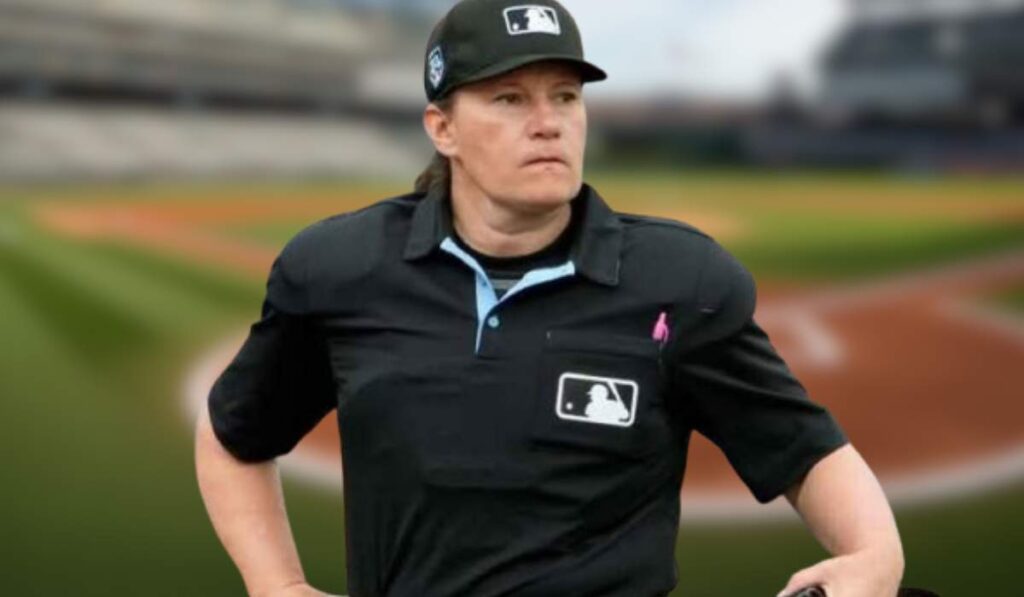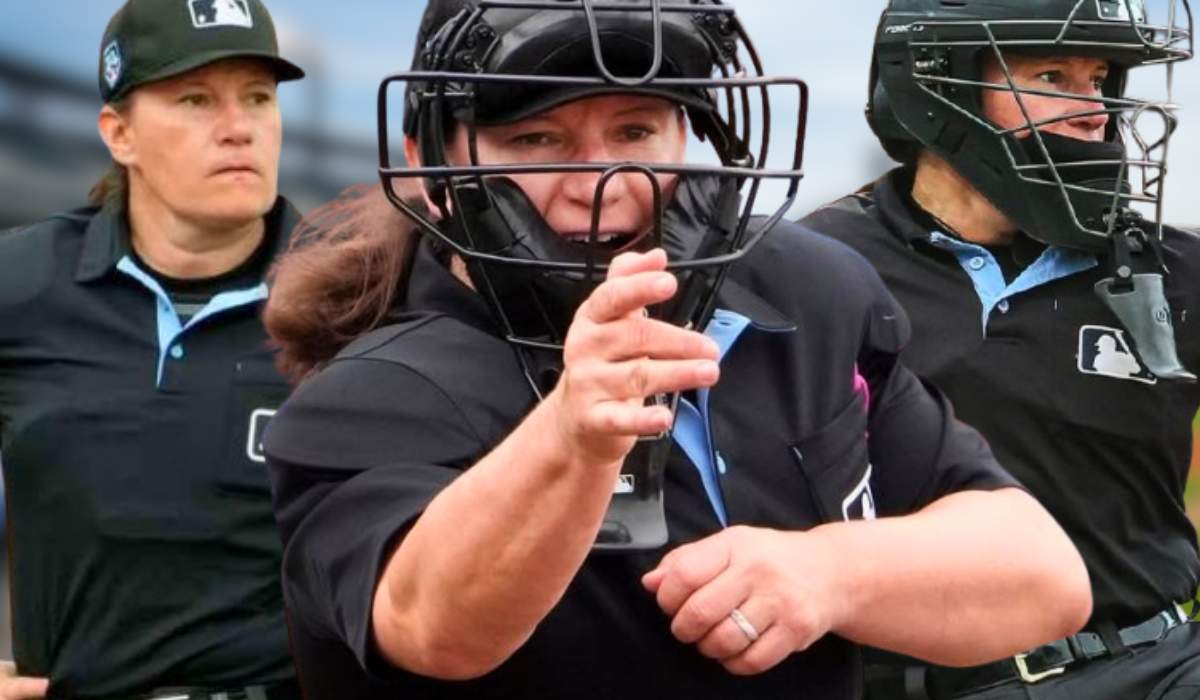The history of Major League Baseball (MLB) was made this week when Jen Pawol MLB debut was officially recorded, marking the first time a woman officiated a regular-season MLB game. Pawol’s appearance behind the plate in the Miami Marlins–Atlanta Braves doubleheader on August 8 has become a cultural and sporting landmark, redefining boundaries in baseball’s longstanding traditions.
The Road to the Major Leagues: Pawol Journey
Jen Pawol rise to the big leagues showcases her perseverance, expertise, and steadfast commitment to the game. A former Division I softball catcher, she transitioned into officiating after graduation, honing her craft at the Minor League Umpire Training Academy. Over the past decade, she amassed experience across the full spectrum of baseball officiating:
- Early foundations: Officiated local high school and collegiate softball and baseball games, showcasing early competence in rule application, positioning, and conflict de-escalation.
- Progressing through Minor Leagues: Worked Single-A, Double-A, and eventually Triple-A games, consistently demonstrating accuracy in calls, composure under pressure, and game-management skills.
- High-profile assignments: Earned slots in spring training contests and MiLB championship games, signaling recognition by evaluator panels of her readiness for the major leagues.
This tenure underscores that her promotion to a regular-season MLB assignment is built on merit—not symbolism.
Also Read:- Elly De La Cruz MLB player Most Electric Young Talent in 2025
The Historic Debut: Game Day Details
On August 8, 2025, MLB scheduled Jen Pawol for a pivotal role: she was assigned home plate duties in one of the games of the Marlins–Braves doubleheader. This assignment marked the Jen Pawol MLB debut as an active, decision-making official rather than a ceremonial presence.
Behind the umpire mask, she stood calmly, focusing on every pitch ball, strike, fair, foul each call scrutinized by thousands of fans in the stadium and millions watching via broadcast. This wasn’t a token appearance; it was a full-fledged integration into the pace and pressure of major league gameplay.
Why This Moment Matters
Representation That Changes Narratives For decades, umpiring at the highest level was an exclusively male domain. Jen Pawol emergence alters the narrative fundamentally: young women across America can now envision themselves not just as players, but as decision-makers on the field. The phrase Jen Pawol MLB debut is already trending, and with it comes a powerful image, that women belong in all roles within the game.
Institutional Shift Towards Inclusivity
MLB selection of Pawol for this assignment reflects an institutional willingness to diversify its officiating ranks. It signals to league administrators, scouting departments, and training academies that merit-based promotions are now open to previously underrepresented talent pools.
Media and Moral Momentum
Public and media reactions have been overwhelmingly positive. Sports anchors, columnists, and talk-show hosts framed the event as a forward stride for baseball, not a novelty. Petty backlash has been muted, thanks in part to Pawol’s flawless professional demeanor under the spotlight.
Reactions From Within the Game
Commissioner Rob Manfred described the moment as “a proud milestone in MLB history,” emphasizing the league’s commitment to opportunity regardless of gender. Pawol earned praise from fellow umpires for her steady demeanor, sharp judgment, and thorough preparation—attributes that make her stand out even alongside the most experienced officials.
Players and coaches, often reluctant to comment on officiating, expressed respect. One catcher noted, “You want consistency, fairness, clarity—she brought all three. That’s what matters.” Pawol herself reflected quietly and powerfully: “I felt intense focus—this wasn’t about being the first woman; it was about being the best umpire I could be that day.”
The Bigger Picture: Building a Pipeline of Officials

Jen Pawol’s milestone can serve as a true turning point only if followed by sustained structural change:
- Mentorship initiatives: Pairing experienced umpires with women entering the pipeline can build confidence and skill.
- Scholarships for officiating training: Financial support would reduce barriers for women seeking full-time development.
- Grassroots outreach: Recruiting in high school and collegiate softball circuits can broaden interest and awareness.
- League accountability: MLB and its affiliates can track and report on diversity metrics in umpiring assignments to ensure progress.
These measures can help transition Pawol’s debut from a momentary symbol to a stepping stone toward lasting equity.
Navigating Challenges and Expectations
With this historic debut come elevated expectations and scrutiny. Every close or controversial call made by Pawol will be examined not only for its technical accuracy but also through the lens of her pioneering status. Vigilance against unfair bias is essential; she must be evaluated by the same standards applied to her colleagues.
The media also has a responsibility to strike the right balance acknowledging the milestone while treating her as a professional, so her legacy reflects skill and credibility rather than novelty.
Also Read:- Bubba Chandler: Rising Baseball Star Making Waves in MLB
Cultural Ripples
The sight of Jen Pawol behind the plate is already rippling across communities. Little league centers, amateur tournaments, and youth softball leagues reported spikes in officiating inquiries from female participants. Social media turned Jen Pawol MLB debut into a banner for diversity, not just in baseball, but in all sports professions.
In classrooms and during training seminars, Pawol’s story now serves as an example of what dedicated preparation and resilience can yield—even in fields where women have historically been excluded.
Final Thoughts: A Moment and a Movement
The phrase Jen Pawol MLB debut represents more than the end of a waiting period—it signifies the opening of a door. What remains now is ensuring that the door stays open. Pawol’s presence invites leagues, local associations, and policymakers to act with intentionality, expanding pipelines and normalizing diversity in officiating.
While her first game behind the plate marks history, the more profound win will be measured in the number of women who follow, undeterred and welcomed onto the field. As the dust settles, the real legacy of her moment will be in the umpiring ranks she helped inspire, the policies she made possible, and the minds she changed.






